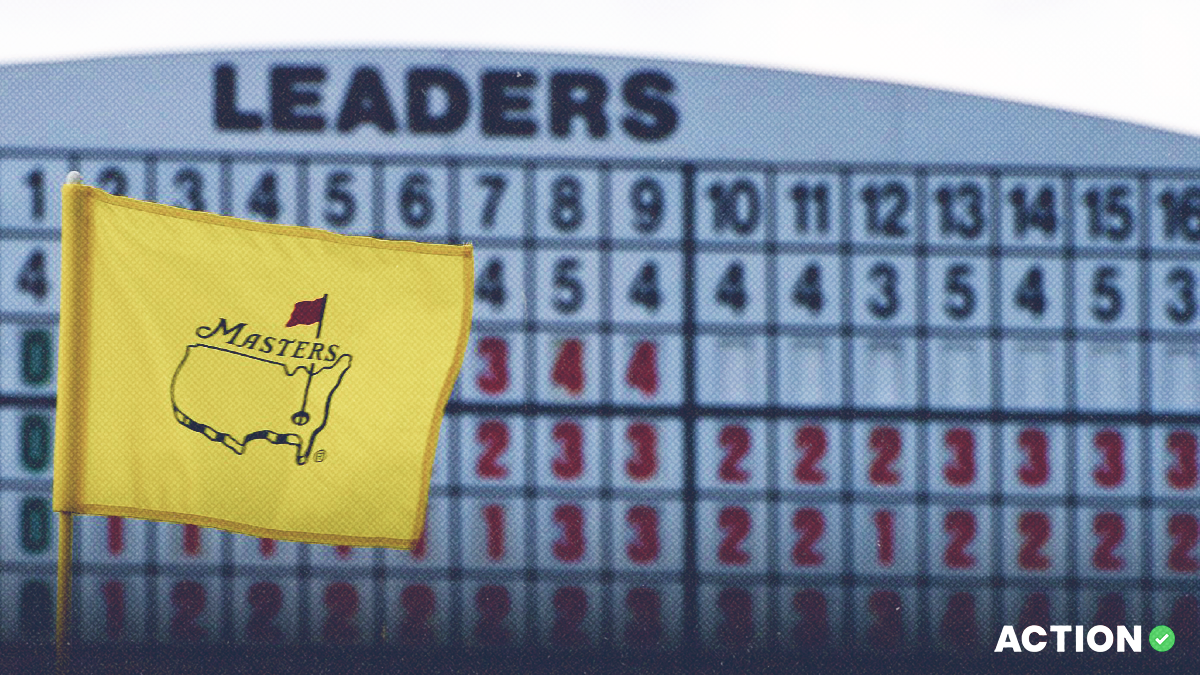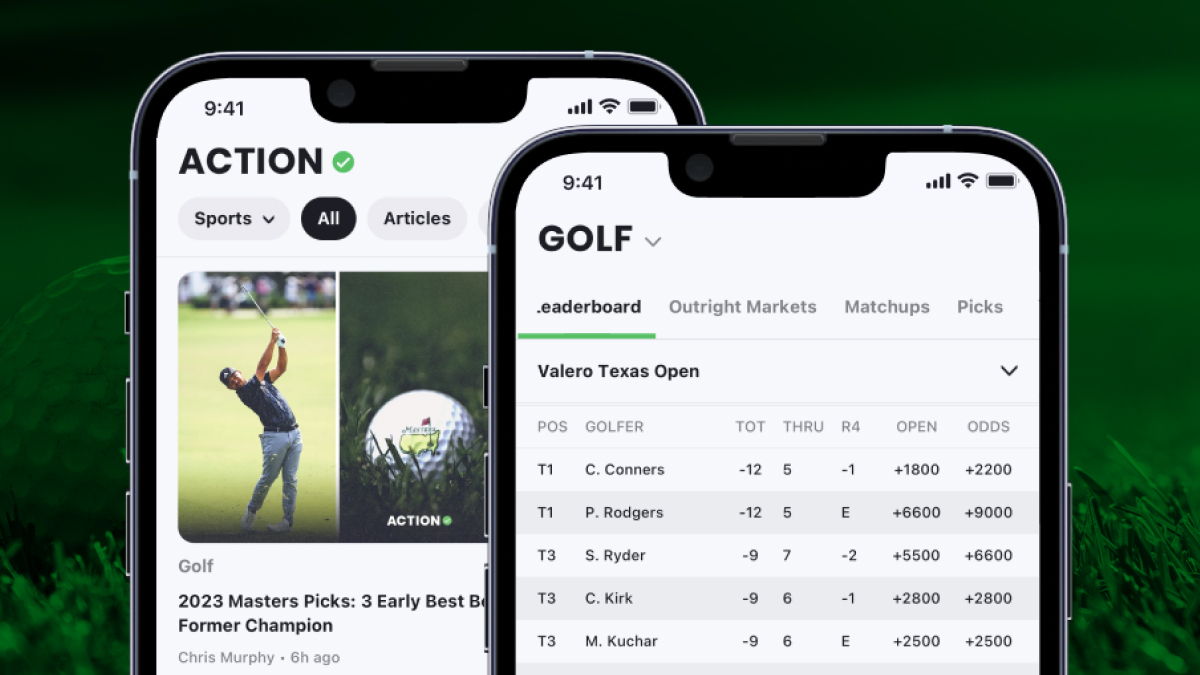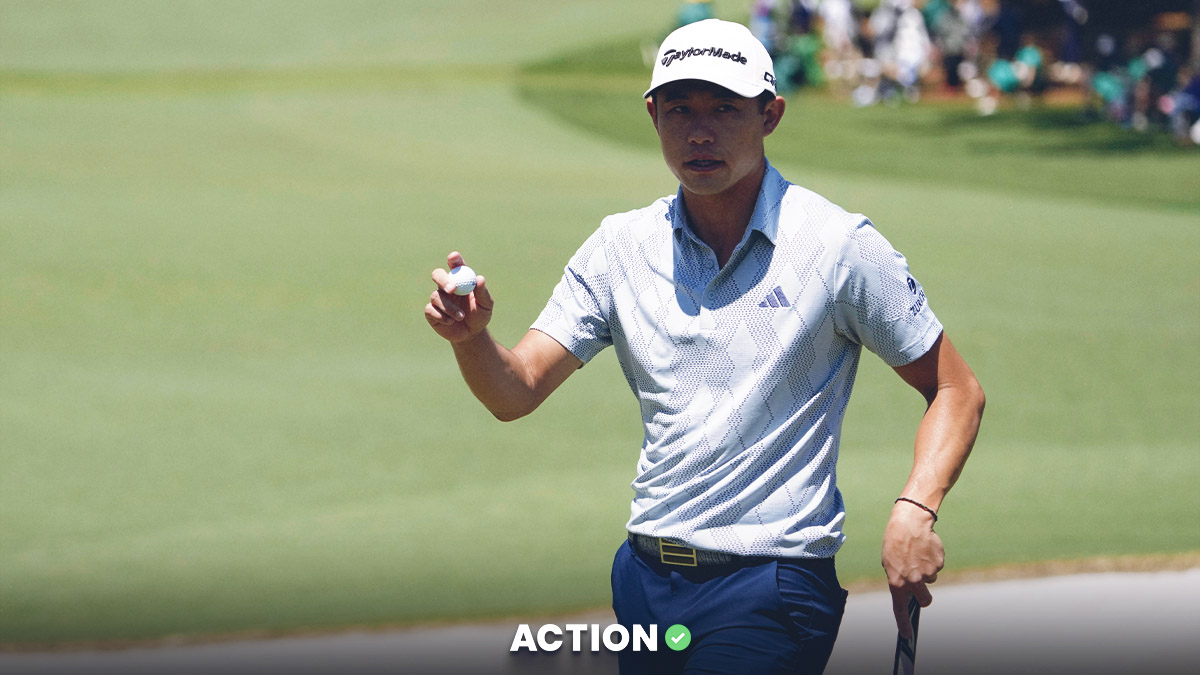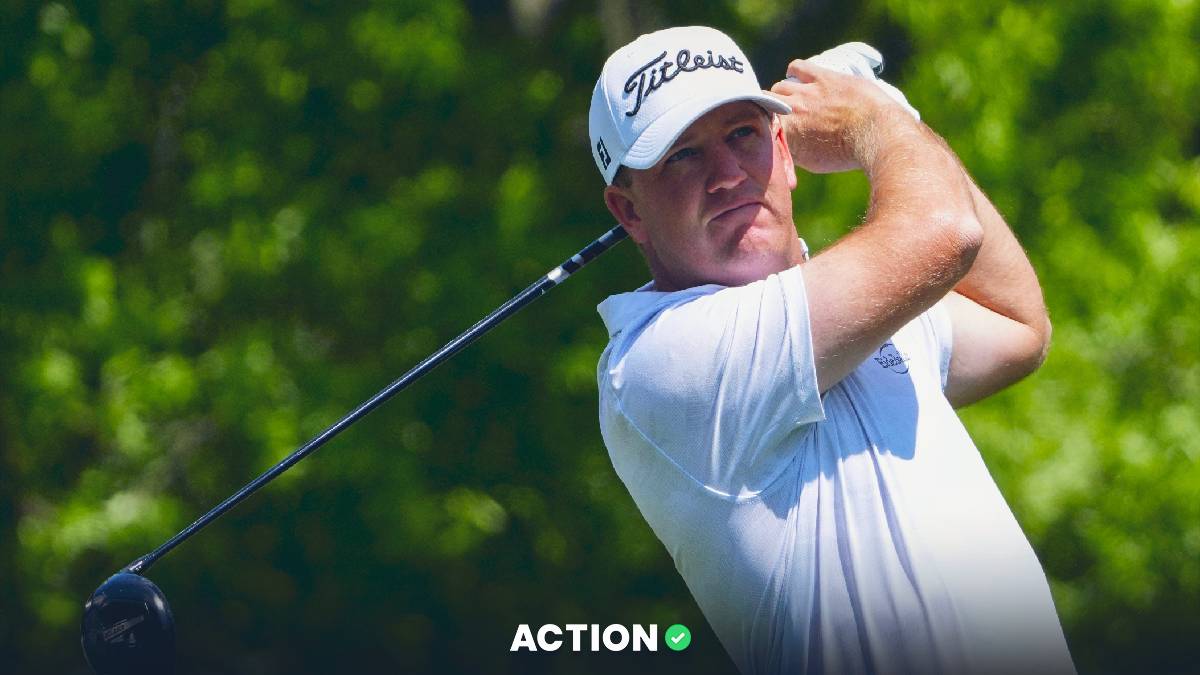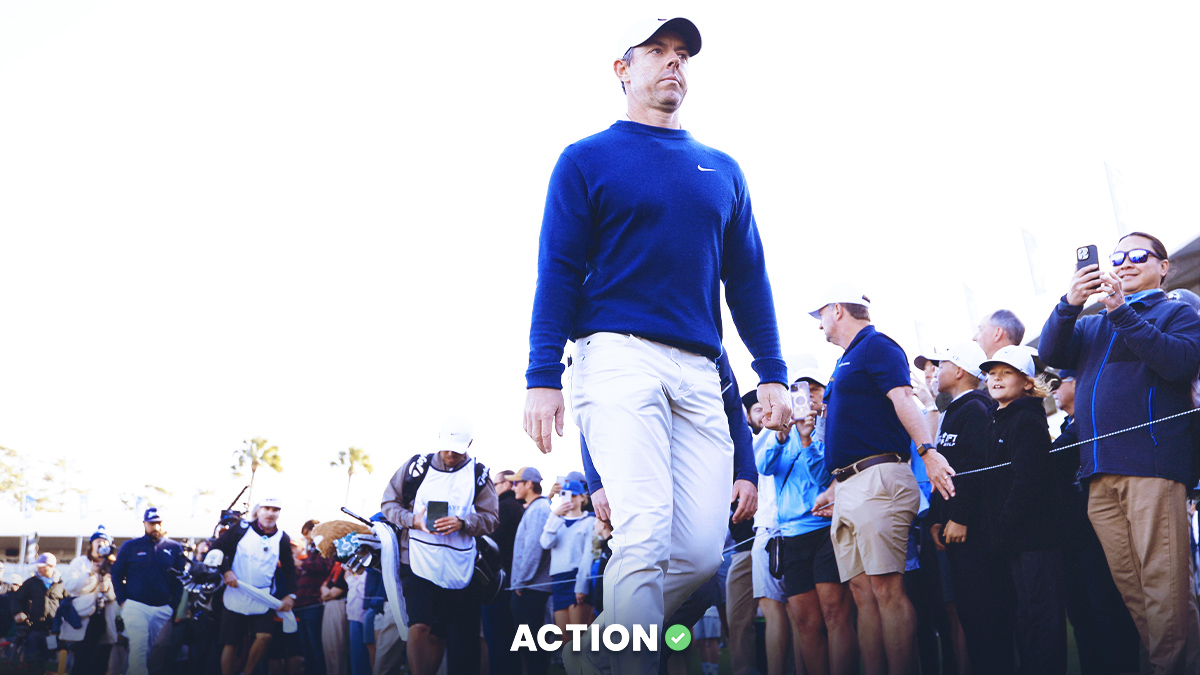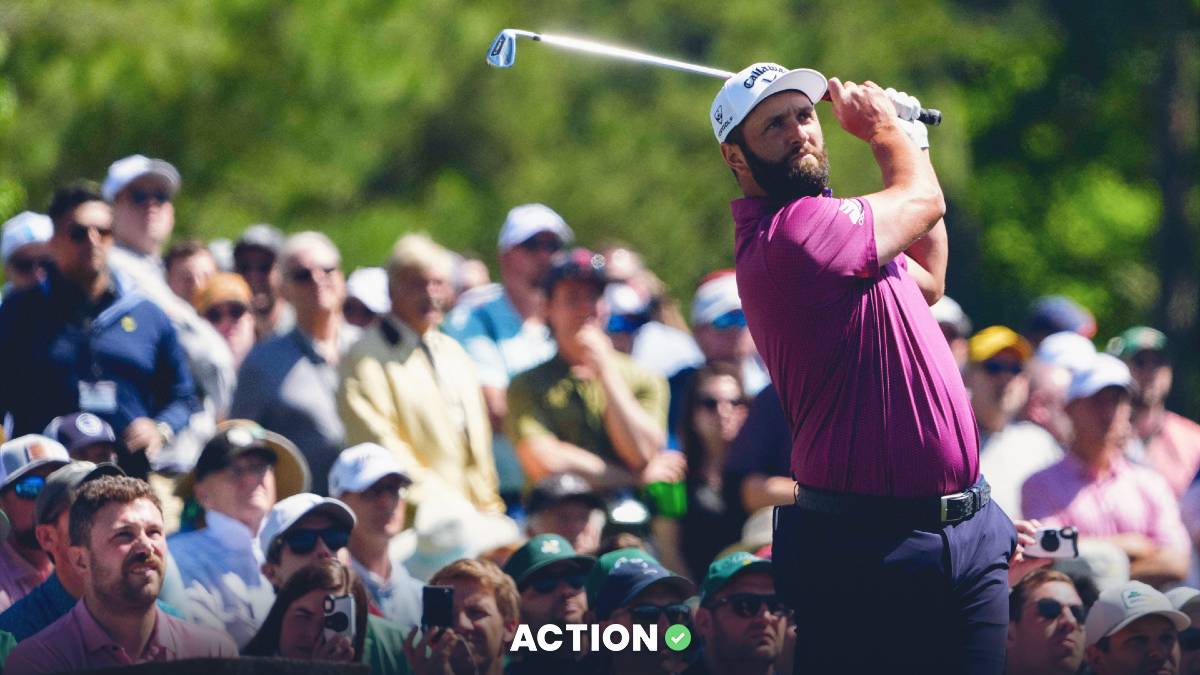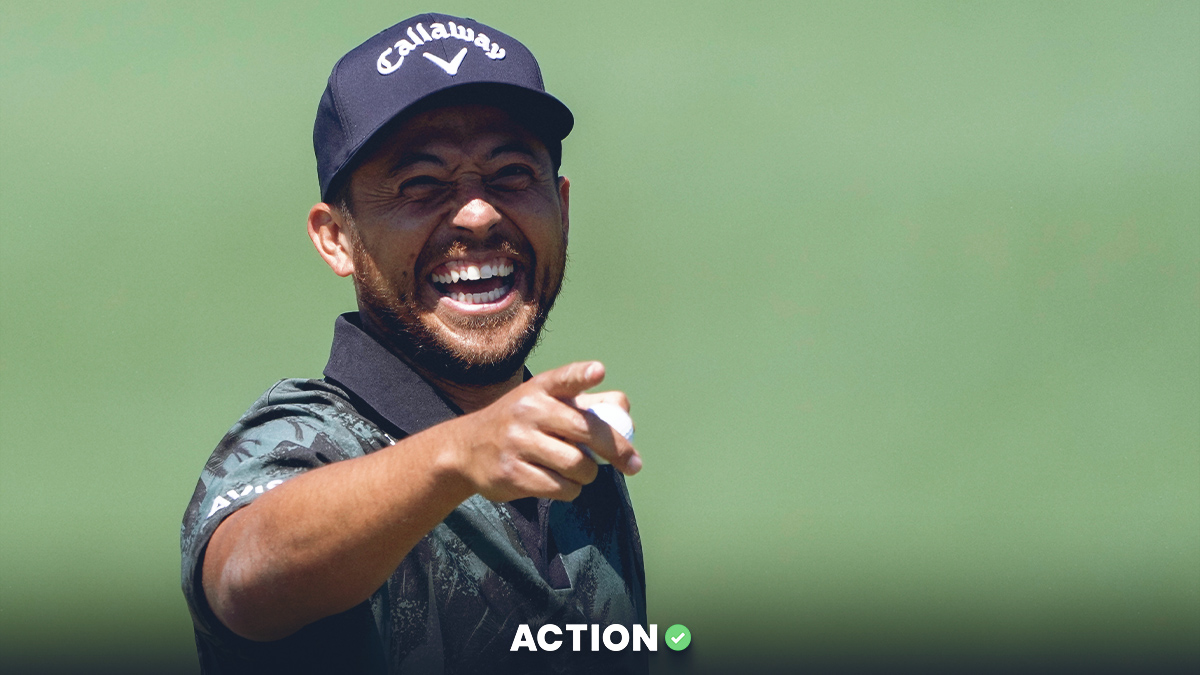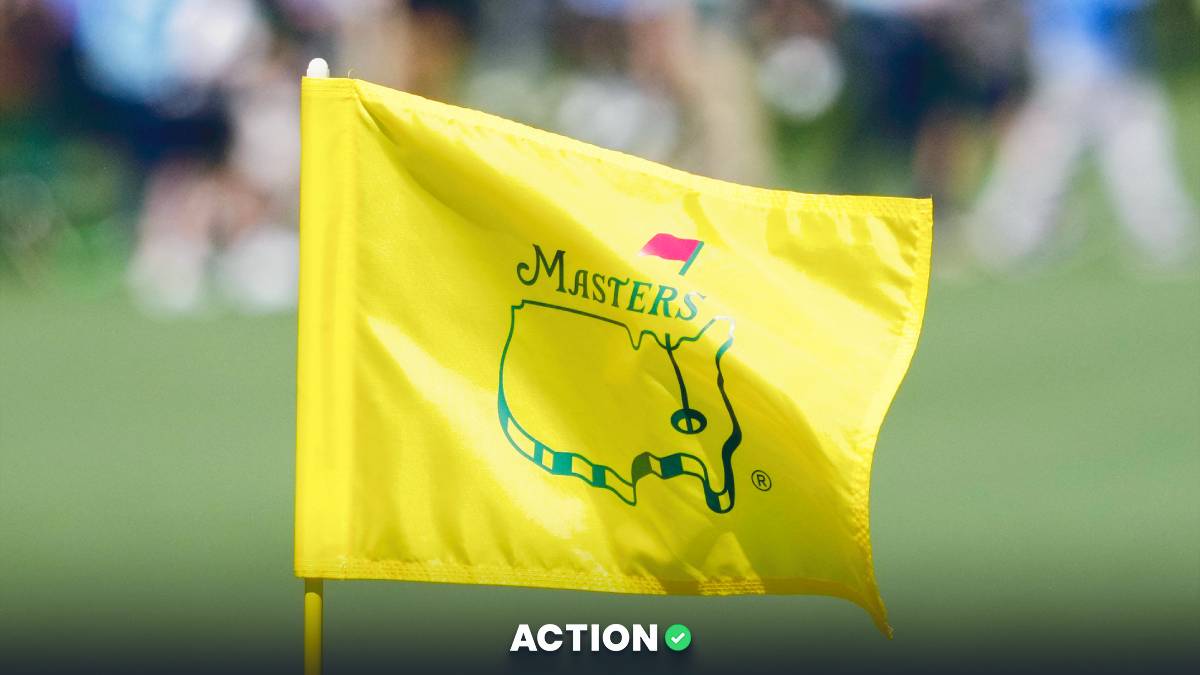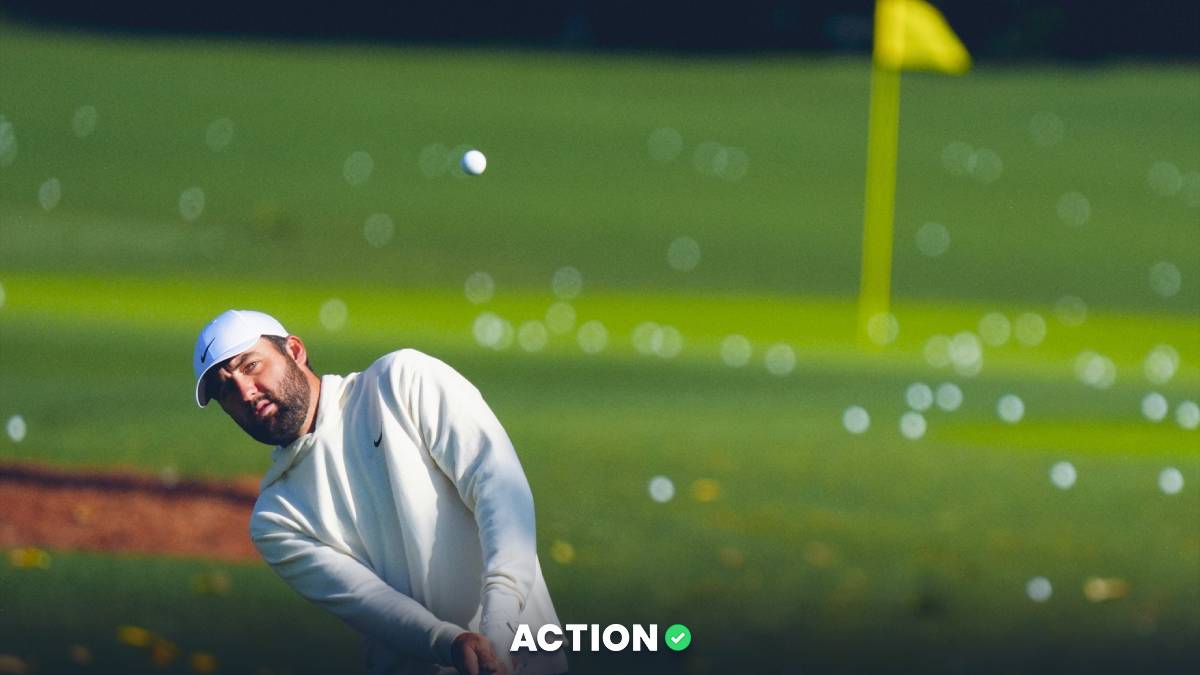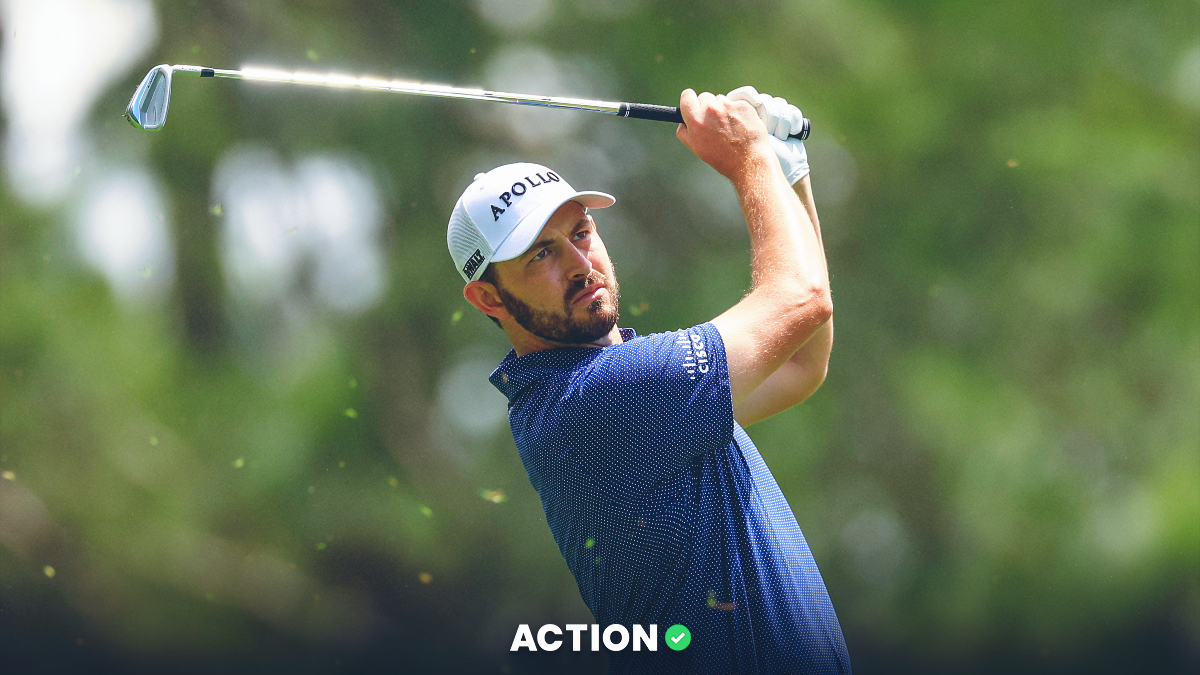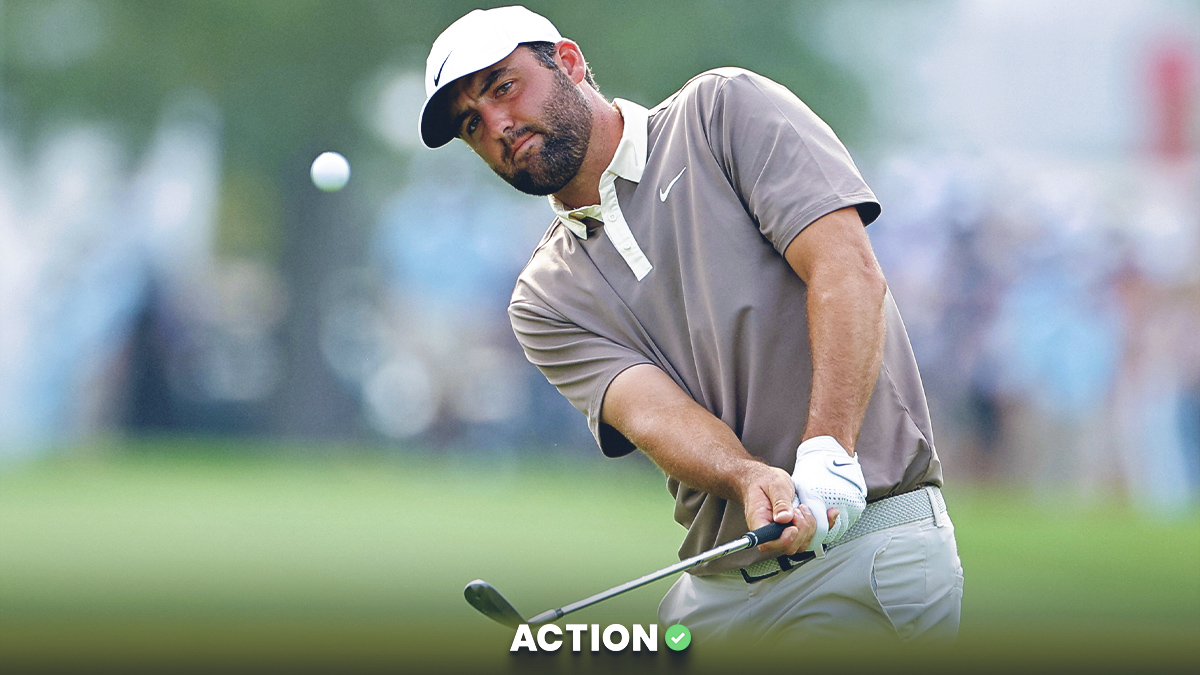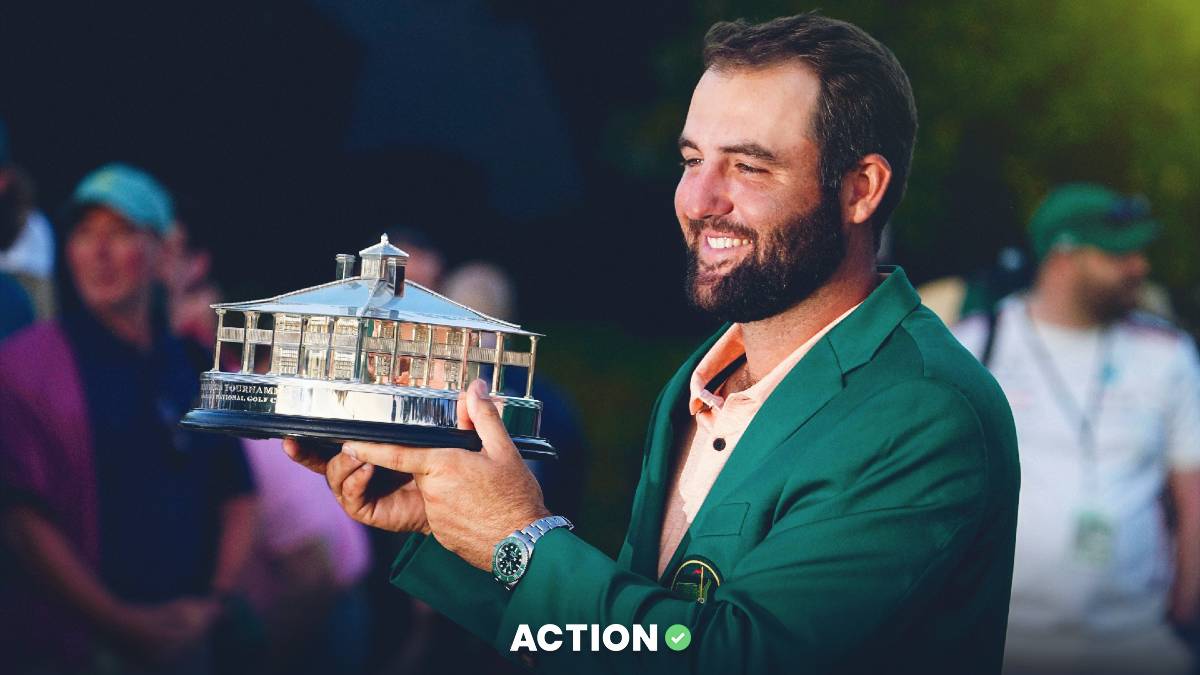Do you want to win your Masters pool? Then you have to get comfortable with coming in dead last, too.
Our typical recommendation for mass-entry pools like this — in which everyone can use the same teams/players — involves ignoring the most popular selections and trying to find comparable players who will be far less selected.
If the popular selections do well, you're toast. But if they don't, you actually have a chance to win.
We've written about this style of selection for NHL playoff pools, NCAA Tournament brackets, NFL survivor pools and more.
Last year for the Masters, I recommended Patrick Reed, who I love using in situations like this because everyone hates him so much. That's an extreme example, but it fits the ethos. When picking between comparable players, take the guy no one else wants to use.
There are many ways to set up a Masters pool, but a typical pool involves "Tiers" in which you pick one golfer from each tier, and their total scores will be added up to create your team's overall score.
In most tiers pools, you pick 6-8 players, and the top 4-6 scores will be counted while the others are thrown out. The tiers approach prevents everyone from taking the same top six golfers and instead forces players to go further down the board with your selections.
We'll use EasyOfficePools' standard tiers that use betting odds to sort the tiers, picking one player from the top five tiers and three players from the "everyone else" tier. Let's assume there are 100 people in the pool, and the top four finishers get paid.
Tier 1 will look something like this:
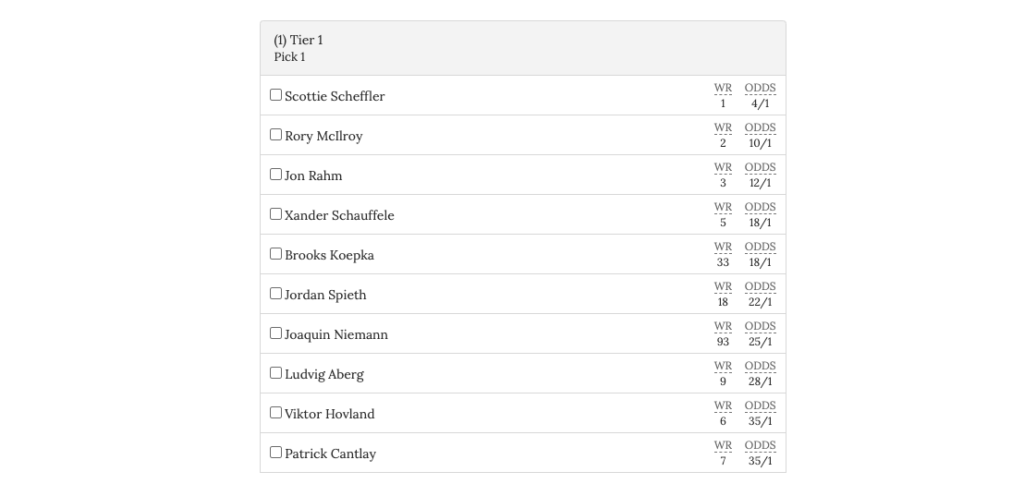
Alright, to the tips and strategy.
1. Try to Win, Don't Try to 'Do Well'
The goal of these pools is to win or come very close to winning because the prize money goes to the top few finishers. Placing 25th out of 150 is the same as finishing 150th. You get nothing.
So, you need to differentiate your lineup if you want to win. And you need to get comfortable with the idea that some years, you may come in dead last by fading the "can't miss" players everyone wants to use.
This concept will inform the rest of my strategy. I don't mind finishing last two years in a row if I can have a chance to win the third year. That pays much more than three straight 40th-place finishes.
Big pools are hard to win, but when it breaks right, differentiating your lineup can pay off. The bigger the pool, the more creative you need to get.
We'll get into it more with each tier breakdown, but don't just take bad players or the worst player in each tier. That's not the case; Lucas Glover will probably go un-owned in his tier, but I have no interest in using him for a variety of reasons.
You just need to create unique lineups with leverage. If you do take Scottie Scheffler, make sure the rest of your picks are unpopular so you can create a unique lineup.
2. Pick Good Golfers
A few years ago at FantasyLabs, we analyzed millions of DFS lineups and found that floor is much more important than ceiling in golf DFS, because the only thing that correlates with DFS success is making the cut. If you stay in the tournament, you raise your ceiling.
The abundance of modern sports statistics will lead many of your pool participants to overanalyze a big event like the Masters. Who has the most upside? Who has win equity? Who putts the best on Bermudagrass? Who are the best iron players from 120-140 yards out?
Golf is an inherently random game in a given round or week. Don't take putting, the most random part, and narrow the sample to just a certain type of grass. Just take the good players who hit the ball far and put it close to the hole. In the long run, those players will win out.
The takeaway from that article that stuck with me most: "Just try to make as many 6/6 lineups as you can and hope that at least one of them has everyone score high."
You don't have to pick players in Tier 5 and Tier 6 who you think will win the tournament; they're in those tiers because they won't win. So, take good players who you think will play well; don't worry so much about "winning upside."
Anyway, I like to use DataGolf's rankings as a measure of ability. Here are a few guys who rank higher in their global rankings than you might expect who you should consider using:
9. Russell Henley
17. Sahith Theegala
18. Denny McCarthy
21. Bryson DeChambeau
28. Si Woo Kim
40. Eric Cole
46. Adam Schenk
3. Get Contrarian & Find Leverage
Alright, here's where we get creative. You need to figure out who everyone will pick and avoid those players.
Leverage is the idea that you can create value by choosing lower-owned players who have a comparable chance to play well as a similar, higher-owned player.
With 100 people in your pool, would you rather be:
- One of five people who used Matthew Fitzpatrick (3% chance to win)
- One of 30 people with Hideki Matsuyama (3.8% chance to win)
To me, the answer is clear.
Here are the top players in our FantasyLabs DFS models in leverage score, which compares projected ownership to upside. It's DFS, so it's a bit different, but I think it gives you a decent idea of the guys that no one wants to use.
It's mostly players who are:
- Boring (Patrick Cantlay)
- LIV players who haven't played well at Augusta (Tyrrell Hatton, Bryson DeChambeau)
- Players in poor form the last 1-2 months (Justin Thomas, Sam Burns)
- Good players making their Masters debut (Wyndham Clark, Nicolai Hojgaard)
- Note: I think Akshay Bhatia will be higher-owned, but since he was a late entry to the field, it's not fully updated.
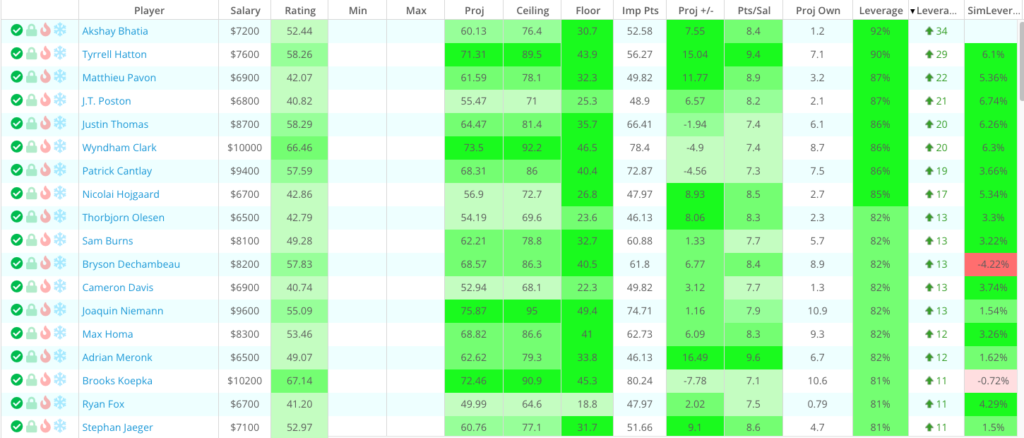
And here are the players with the highest ownership projections. It's mostly:
- Players with great course history (Hideki Matsuyama, Shane Lowry, Jordan Spieth, Corey Conners).
- Players in great form (Scheffler, Xander Schauffele, Sahith Theegala)
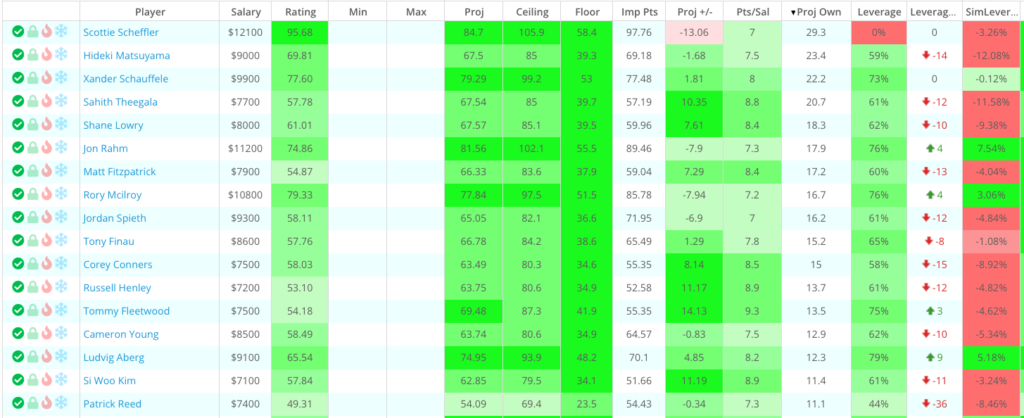
3b. Why Leverage is So Important
When you use the same player as everyone else, it doesn't really help you because the other entries also move up in the standings when that player does well. Remember, you're just trying to beat the other entries; it doesn't really matter what the numeric scores are.
This visual represents leaderboard movement when Jon Rahm, owned by just two of the top 10 entries, birdies a hole, versus when Scheffler does.
If you've ever been in contention in a tiers golf pool like this, you know the changes in standings slow to a crawl on Sunday when some of your players complete their rounds and your top guys are also used by the entries you're battling for first.
If you're in third with Jon Rahm, but the two entries in front of you also picked him, Rahm playing well doesn't really help you. You need someone else your opponents don't have so you can move up while their position remains the same.
The hard part is you don't know who will be the most-owned golfers in these pools. It's not like the NCAA Tournament, where Yahoo! and ESPN will actually tell you.
So we have to make some assumptions. We do DFS ownership projections at FantasyLabs, which can give you some idea. Tyler Tamboline on Twitter does a good thread highlighting the most recommended players in the industry you'll probably want to avoid.
Last year, Tier 1 in a pool I did was very heavy on defending champion Scottie Scheffler and much lighter on Jon Rahm, who ended up winning.
4. Use Odds, But Not Blindly
Many people will gravitate toward the players in each tier who have the best odds to win.
Most people don't follow golf closely enough to separate top 15 players like Tyrrell Hatton from Russell Henley, let alone Nicolai Hojgaard and Eric Cole, so they let the betting market do it for them. That isn't a terrible approach.
But if you can get a 22% Sungjae Im vs. a 13% Cam Young and their chances of finishing top 10 are the same, you should always take Young.
Here's how Tier 1 looked in a pool I did last year. The ownership generally follows the odds, with a few deviations, like Patrick Cantlay going under-owned because no one likes him.
Rahm ended up being the best play in this tier since he won, and the ownership leverage you got over everyone taking Scheffler was massive. Their odds to win were pretty close (11.76% for Scheffler vs. 9.5% for Rahm), but their ownership was miles apart. Rahm made tons of sense here.
You should also not use the betting odds that your pool site gives you. They're often stale and don't update throughout the week as the betting market changes. EasyOfficePools has Max Homa at 40-1 in 2024, but Pinnacle has him north of 80-1.
5. "Ignore" Course History
Course history does actually matter at Augusta National, but I think people tend to overrate it in the context of these pools.
Would you rather have:
- An aging player who has played well at the Masters at times in the past but isn't playing well right now, who is 25% owned?
- A rising star who is simply a much better golfer but hasn't contended at Augusta and is 10% owned?
I'm often choosing the second option, especially because the "Augusta guys" will be over-selected relative to their value. Last year, Justin Rose was picked by about 30% of the entries in my pool despite entering in average form. Ultimately, he missed the cut.
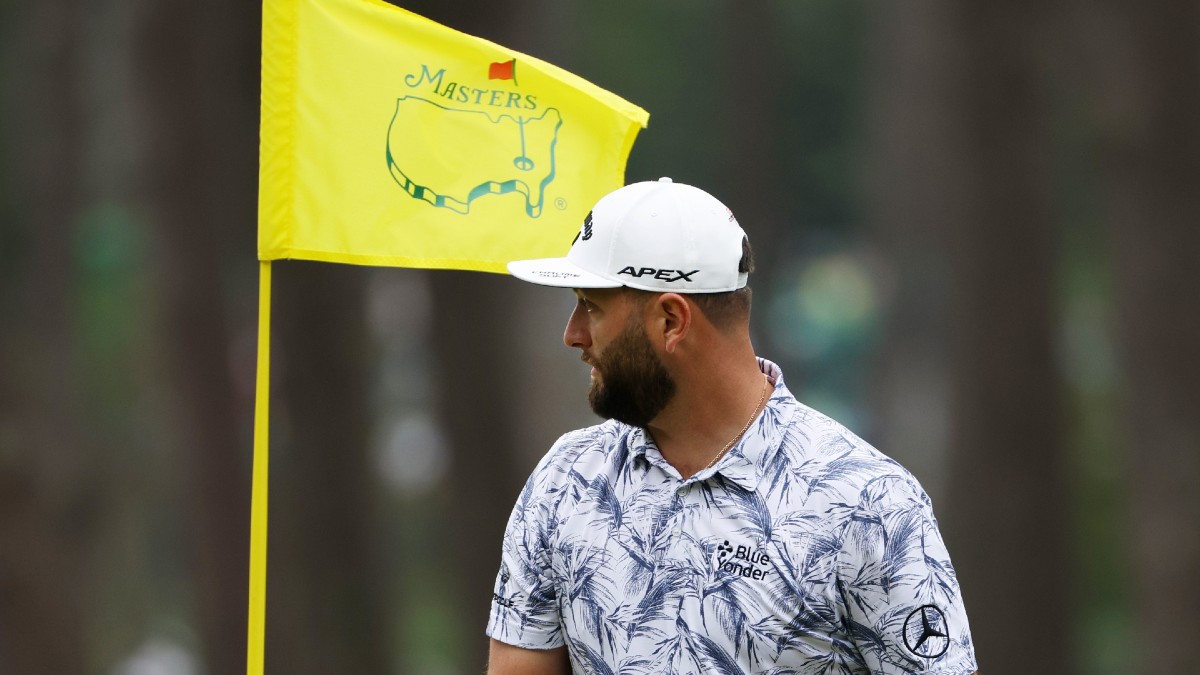
6. Be a Hater
Last year, I recommended using LIV golfers because 1) many golf fans turned on them, and 2) they had all been in pretty poor form entering the Masters or hadn't played much.
I'm not sure how people will treat it this year considering three of the top six finishers in the 2023 Masters were LIV golfers, and last year's winner Jon Rahm is now on the LIV side, too.
I think we could see a pretty big interest in three LIV players in particular, depending on how the tiers are set up — Rahm, Brooks Koepka and Joaquin Niemann. Niemann has seven top-five finishes in eight starts since Thanksgiving to go along with three wins.
LIV players I think will garner interest:
- Jon Rahm
- Brooks Koepka
- Joaquin Niemann
- Cam Smith
- Patrick Reed
- Phil Mickelson (I'm honestly not sure on Phil; he's been terrible since the last Masters, but he finished a surprising second)
LIV players I think will be ignored:
- Dustin Johnson
- Bryson DeChambeau
- Tyrrell Hatton
- Adrian Meronk
7. Tier-by-Tier Breakdown
Alright, let's dive into the actual tiers on EasyOfficePools. Again, your pool may be slightly different, so use the general concepts — avoid what you believe will be the most popular plays in favor of comparable players who are being ignored.
I've listed the odds from EasyOfficePools alongside the odds from Pinnacle as of Tuesday night to give you an idea of how the real, live betting market views these players.
Tier 1
I expect Scheffler to be 50-60% owned at least, Rahm to get 15-20% and everyone else to trickle in at much less than that.
The player I expect to provide the most leverage is Rory McIlroy, and I'll be using him in at least a few entries. He missed the cut last year, hasn't won a major in a decade and his form has been just OK with only one finish better than T-19 on the PGA TOUR this calendar year (third last week at the Valero).
Despite having the second-best odds on the board, I think most people have been burned enough by Rory in these pools that they'll avoid him in favor of Rahm and Scheffler.
Because of the star power at the top, almost everyone else will be 5% owned or less, so you can't really go wrong taking a shot on Viktor Hovland or Jordan Spieth. I expect Xander Schauffele to be the third-most owned here.
If your tiers are different, though, I think Spieth, Koepka and Schauffele will be popular if people don't have to choose between them and Scheffler.
Tier 2
This tier will be much more diverse in usage. Given his form and course history, Hideki Matsuyama will be the most popular play. After that, I'd guess Cam Smith and Will Zalatoris will garner interest.
The players I'm interested most in are Matthew Fitzpatrick, Justin Thomas and Dustin Johnson. They've all shown up at the Masters before, though I wouldn't say any of them are thought of as "Augusta guys" like Hideki or Smith.
Thomas started the year red-hot and has cooled a bit, but he has the iron and short-game profile to win here. He missed the cut last year but had seven straight T-21 or better finishes prior to that.
Fitzpatrick may not have the irons to win here, but I think a top-10 finish is in the cards.
Tier 3
This tier has an interesting mix of course history guys like Shane Lowry and Jason Day, and anti-course history guys like Bryson DeChambeau and Tyrrell Hatton.
Regrettably, DeChambeau is probably my favorite play here. Since he's not a fan favorite, you won't get people gravitating toward him, and his odds are among the best in this tier. He's been in great form on the LIV Tour but has been awful at Augusta, with his best finish coming in his debut in 2016 (T-21).
I also like Sahith Theegala, though I do think he's going to be one of the more popular players in this tier. If the first two selections I take are unique, I'll use him.
Tier 4
In this tier, the listed odds really deviate from the actual, live odds. The top three players in listed odds are in the bottom half of live odds.
Russell Henley is DataGolf's highest-rated player in this tier by a considerable margin, but the fact that he has the best real odds might make him a bit more popular than I'd like. If my first three picks are unique, I may use him.
I'll also use Adam Scott, who has been in solid form for most of the last 12 months. And because I'm a certified hater, I don't mind taking Patrick Reed here, either.
Tier 5
Si Woo Kim is my favorite play in a vacuum here, but given that his real odds are so far ahead of everyone else, I'll probably skip him unless the first four picks in my lineup are very unique and he's my one "chalky" play.
Stephan Jaeger is making his debut at Augusta but has a strong all-around game and has been incredibly consistent over the last 12 months. His win at the Houston Open may bump up his ownership, though.
Another guy I like in this tier is Chris Kirk, a Georgia native who has been steady at the Masters with three T-33 or better results in four tries.
He won the Sentry to open the 2024 calendar but has been a bit quiet since. He won't win the tournament, but a strong finish to anchor the back of your lineup is definitely in the cards.
Tier 6
In some pools, you may pick multiple golfers from this tier. This is when people who don't follow golf tend to get lost and gravitate toward the guys with the best odds and the names they know.
A few guys I don't think will be too popular who I'll use:
- Adrian Meronk: A great ball-striker unknown to most golf fans, he's been in OK form on LIV but did miss the cut in his Masters debut last year.
- Erik van Rooyen: He flipped the switch sometime last summer and rose from outside the DataGolf Top 500 to 62nd entering the Masters. His irons are great, and he struggles around the greens, so he's got one thing going for him.
- Matthieu Pavon: He seemingly came out of nowhere to win the Farmers, then almost won at Pebble Beach the next week. It's his Masters debut, so I don't expect him to be used much. He can putt the lights out, and the rest of his game is well-rounded enough to post a decent entry for the back of your lineup.

Final Picks
If I could only make one entry, I'd go:
- Tier 1: Rory McIlroy
- Tier 2: Matthew Fitzpatrick
- Tier 3: Bryson DeChambeau
- Tier 4: Russell Henley
- Tier 5: Chris Kirk
- Tier 6: Erik van Rooyen
That's it! That's all I've got for you.
Again, try to poke around, get a sense of who everyone is talking about and avoid those guys. Use betting market data, but don't trust it blindly because everyone will do that.
And most importantly, don't be afraid to finish last. You will more often than you win, but when you win, you'll actually win money.


